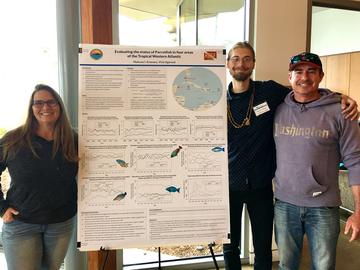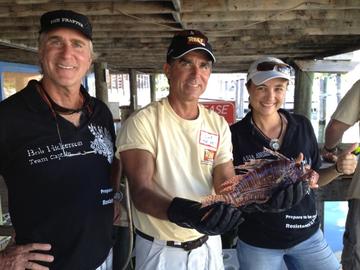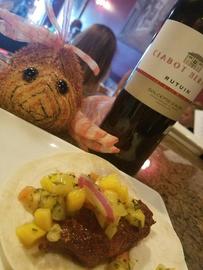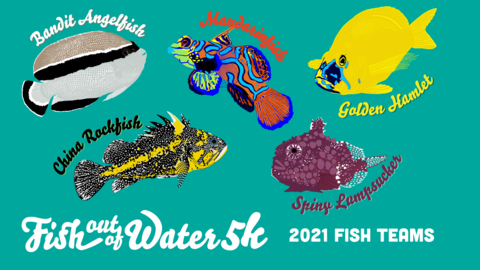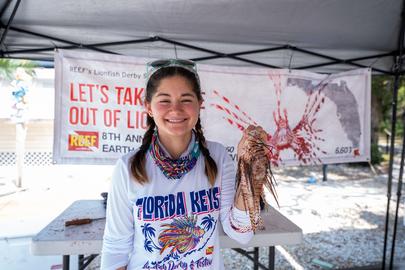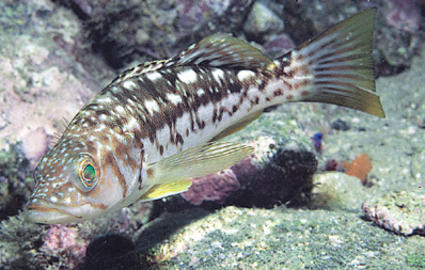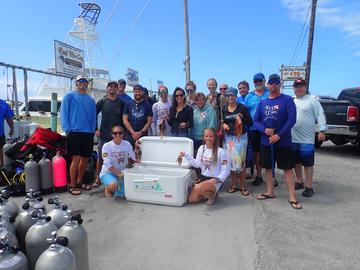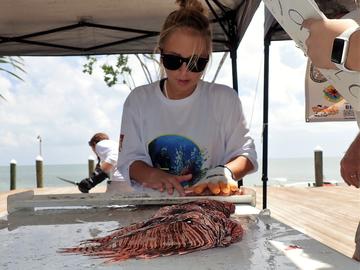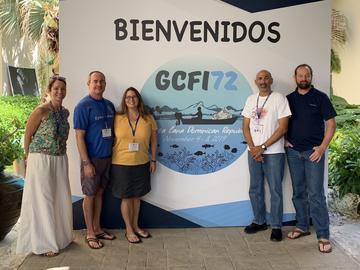Herbivores play a critical role in balancing coral reef ecosystems. In the Caribbean, this role is mostly filled by parrotfish, surgeonfish, and sea urchins. Parrotfish take their important role one step further in that their constant scraping of algae growing on rock and dead coral results in a lot of poop, which is effectively the nice white sand found on beaches. A single parrotfish can generate up to 700 pounds of sand a year. Parrotfish are also a favorite food fish, and unfortunately their populations have been heavily depleted in many areas.
Current search
Search found 195 items
- tropical western atlantic
- (-) Remove e-News article filter e-News article
This summer REEF, in partnership with Divers Direct and SeaGrant Florida, hosted its third annual Lionfish Derby Series. The series included four derbies in Florida (Miami, Fort Lauderdale, West Palm Beach, and Key Largo) and one in Green Turtle Key, Bahamas. The event series was a huge success—in total, 219 participants in 60 teams brought in a total of 2,694 lionfish!
On June 22, SCUBA divers, marine conservation enthusiasts, and foodies gathered at Piccolo Ristorante in Fort Lauderdale, Florida, to attend the second annual Lionfish Tasting Dinner. During the event, patrons learned about effects of the lionfish invasion while sampling the tasty invader’s light, white meat. At the end of the evening, DiveBar, one of the night’s sponsors, presented REEF with a check for $1,500 to support our Invasive Lionfish Program.
There's still time to register for the second annual Fish Out of Water Virutal 5K, coming up on June 7-13, 2021. If you haven't registered yet, click here to do so now. Be sure to sign up soon - early bird registration rates end on May 10! When you sign up, you will choose to join one of five Fish Teams. Each fish is a popular species found in REEF's Volunteer Fish Survey Project regions.
Fourteen teams of divers persevered through windy conditions to bring in 494 invasive lionfish during the 2021 REEF Earth Day “Locals” Lionfish Derby. Teams were permitted to fish in Monroe County waters from sunrise to sunset on Saturday, April 24. More than $2,500 in cash and prizes was awarded to teams who brought in the most, largest, and smallest lionfish.
This month, REEF is proud to highlight one of our outstanding Conservation Partners: Key Dives in Islamorada, FL. REEF Conservation Partners are active organizations and dive shops dedicated to protecting marine environments. As valued REEF ambassadors, they teach fish ID classes, host survey dives, organize volunteer events and more. Read on to find out how you can get involved with these centers of conservation action!
REEF’s 2019 Lionfish Derby Series ended on Sunday, Sept. 15 with the 10th Annual Upper Keys Lionfish Derby and Festival, hosted by Postcard Inn Beach Resort & Marina. Throughout the weekend, 28 derby competitors scoured the reefs and brought in a total of 1,263 lionfish, a new record for REEF Lionfish Derbies in the Florida Keys. Nine teams competed for most, largest, and smallest lionfish in this year’s Upper Keys Derby, vying for more than $4,400 in cash and prizes.
REEF staff and partners just returned from the annual Gulf and Caribbean Fisheries Institute (GCFI) conference, held this year in the Dominican Republic. REEF’s programs and data were represented to the GCFI community by REEF Director of Science, Christy Pattengill-Semmens, and REEF Invasive Species Program Manager, Alli Candelmo, as well as our partners from Scripps Institute of Oceanography (Brice Semmens), Oregon State University (Scott and Selina Heppell), and Cayman Island Department of Environment (Bradley Johnson).

